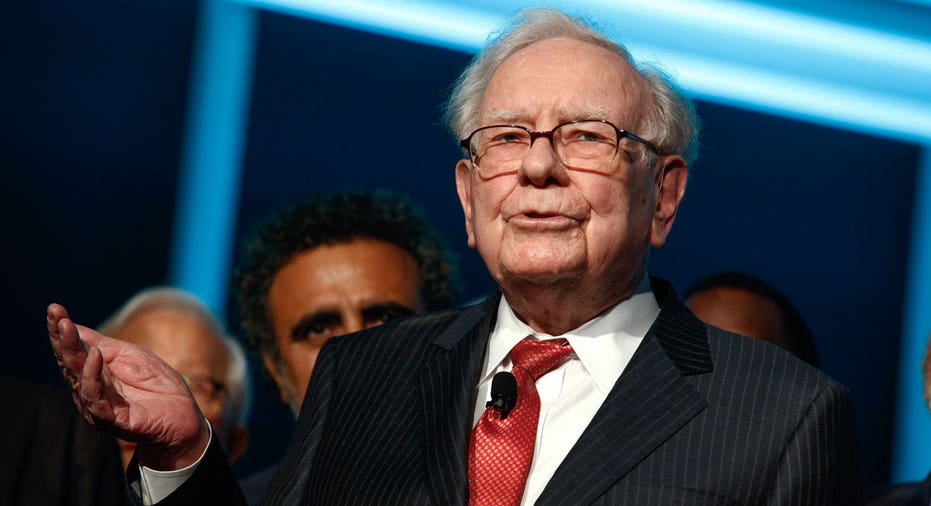Buffett's latest milestone: Berkshire stock hits $300,000

Berkshire Hathaway Inc’s (NYSE:BRKA) stock price touched $300,000 for the first time on Monday, reflecting investors’ confidence in Warren Buffett’s conglomerate despite four straight quarters of lower operating profit.
Crossing the $300,000 threshold put Berkshire’s Class A shares up 22.9 percent for the year, compared with a 20 percent gain in the Standard & Poor’s 500.
Berkshire’s Class B shares, worth about 1/1500th of Class A shares, traded at around $199.75. Neither class pays dividends.
The gain occurred even though 2017 has been Berkshire’s second straight year of mediocre operating performance relative to prior periods.
Operating profit, which rose 1 percent in 2016, was down 16 percent from January to September, reflecting losses from storms such as Hurricanes Harvey, Irma and Maria, and the accounting for a transaction with American International Group Inc.
But book value, or assets minus liabilities, was up 8.9 percent. Buffett considers this a good measure of Omaha, Nebraska-based Berkshire’s growth.
Berkshire has more than 90 operating units, including large businesses such as the BNSF railroad, Geico auto insurance and Berkshire Hathaway Energy utilities, and smaller businesses making Dairy Queen ice cream, Duracell batteries, Fruit of the Loom underwear, Ginsu knives and the World Book encyclopedia.
Buffett, 87, has run Berkshire since 1965, when it was a struggling textile company whose shares were worth barely $11 each. Shareholders who hung on for the ride have had gains topping 2,400,000 percent.
Only a handful of U.S. companies have stock prices that have reached even four figures.
Other members of the exclusive club include Amazon.com Inc, Google parent Alphabet Inc and Priceline Group Inc, and lesser-known companies such as Seaboard Corp, a pork producer that also ships cargo by sea.
A high share price can reduce trading and encourage long-term ownership.
But companies can encourage retail ownership by splitting their stock or, as Berkshire did, creating lower-priced shares.
In 1996, Buffett created Class B shares worth 1/30th of Class A shares, but with lesser voting rights, to stop fee-hungry managers from creating “unit trusts” that sliced up Class A shares for smaller investors seeking “Berkshire look-alikes.”
Then in 2010, when it bought BNSF, Berkshire split the B shares 50-for-1, letting more of the railroad’s shareholders swap their stock for Berkshire stock if they wished.



















